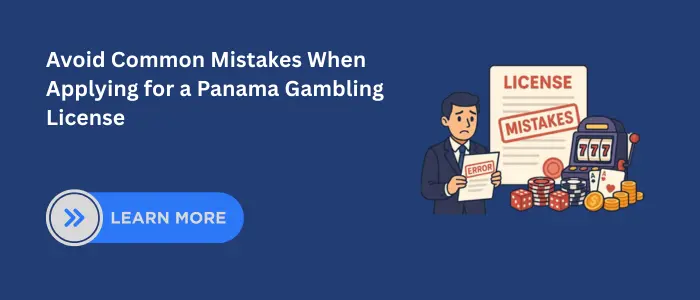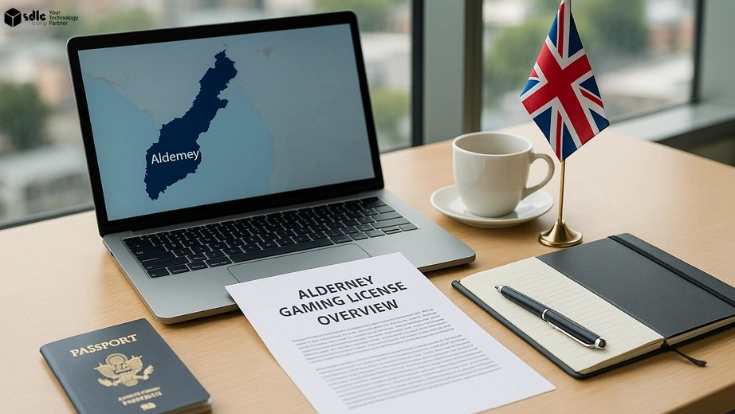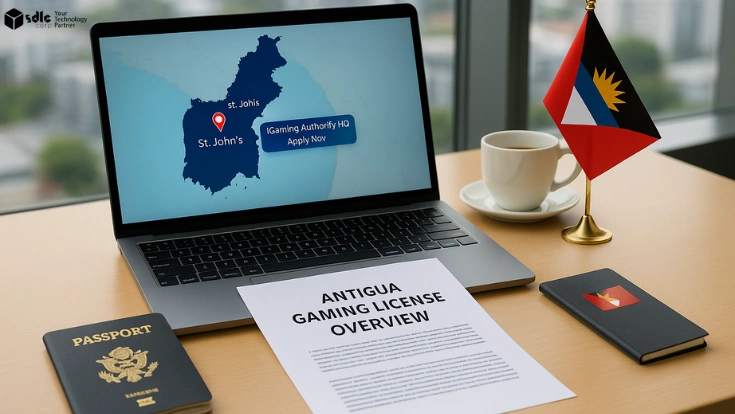Introduction
Obtaining a Panama gambling license can be a complex and daunting task. The process involves navigating through a myriad of regulations and requirements, making it easy to fall into costly mistakes. Understanding the intricacies of Panama’s online gambling regulations is crucial to a successful application. Applicants must be aware of the pitfalls that can lead to delays or even rejection. By being informed about the gaming license requirements and avoiding common errors, you can ensure a smooth and efficient licensing process. If you’re planning to apply, here’s a complete guide to Panama gambling license requirements.
1. Understanding Panama's Gambling Regulatory Framework
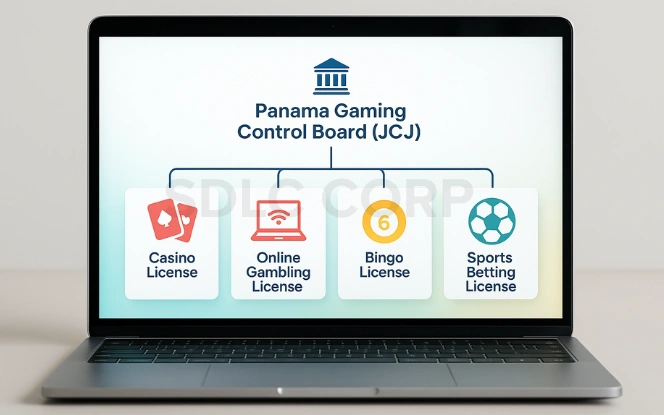
To successfully apply for a Panama gambling license, it’s crucial to understand the country’s regulatory framework. This framework is designed to ensure that all gambling activities are conducted fairly and in compliance with the law.
The Panama Gaming Control Board (JCJ) Structure
- JCJ is the governing body overseeing the gambling industry in Panama.
- It ensures effective monitoring and regulation of all gambling operations.
- The board is divided into key departments handling:
- Licensing
- Compliance
- Enforcement
- Licensing
- This structure ensures a comprehensive approach to regulation.
Types of Gambling Licenses Available in Panama
- Panama provides different types of gambling licenses for operators, including:
- Online gambling licenses
- Land-based casino licenses
- Sports betting licenses
- Poker room licenses
- Online gambling licenses
- Each license comes with specific requirements and restrictions.
- Operators must select the license type that aligns with their business model.
Recent Regulatory Changes and Their Impact
- New regulations aim to enhance integrity and security in gambling operations.
- Key changes include:
- Stricter anti-money laundering (AML) requirements.
- More rigorous know-your-customer (KYC) policies.
- Stricter anti-money laundering (AML) requirements.
- Operators must stay updated with these changes to maintain compliance.
- Failure to comply may result in penalties or operational risks.
How JCJ Regulates Gambling in Panama
The Panama Gaming Control Board (JCJ) oversees all gambling activities in the country. Its responsibilities can be summarized in three key areas:
- Licensing – Reviewing applications, verifying documentation, and issuing gambling licenses.
- Compliance – Ensuring operators meet legal, financial, and technical requirements, including AML/KYC standards.
- Enforcement – Monitoring activities, conducting audits, and applying penalties for violations.
In short: Licensing → Compliance → Enforcement
2. Common Mistakes When Applying for a Panama Gambling License
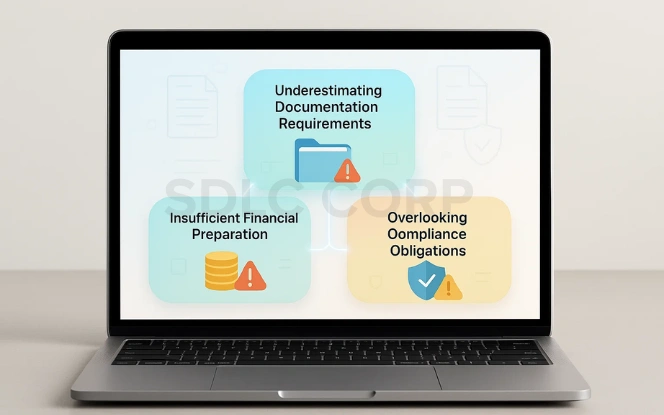
Navigating the application process for a Panama gambling license can be daunting without proper guidance. Many applicants encounter issues that can delay or even derail their application due to avoidable mistakes.
Underestimating Documentation Requirements
A common mistake is underestimating the complexity and volume of documents required for license applications.
Applicants must provide comprehensive and accurate paperwork to avoid delays or rejections.
Missing or incomplete documents can lead to serious setbacks in the licensing process.
Key documents include:
- Detailed business plans
- Financial statements
- Background checks on key personnel
Example: In 2022, a sportsbook operator’s application was rejected because they failed to provide financial statements for two board members. This small oversight caused a 6-month delay.
Insufficient Financial Preparation
Financial Requirement Table:
| Financial Requirement | Description | Amount |
|---|---|---|
| Minimum Capital | Initial investment required | $500,000 |
| License Fee | Annual fee for license | $10,000 |
| Operational Costs | Ongoing expenses | Variable |
Overlooking Compliance Obligations
Overlooking compliance obligations can lead to severe consequences, including fines and license revocation. Applicants must ensure they understand and adhere to all regulatory requirements, including anti-money laundering (AML) and know-your-customer (KYC) regulations.
Regular audits and compliance checks are essential to maintaining a good standing with the Panama Gaming Control Board.
3. Inadequate Business Planning and Structure
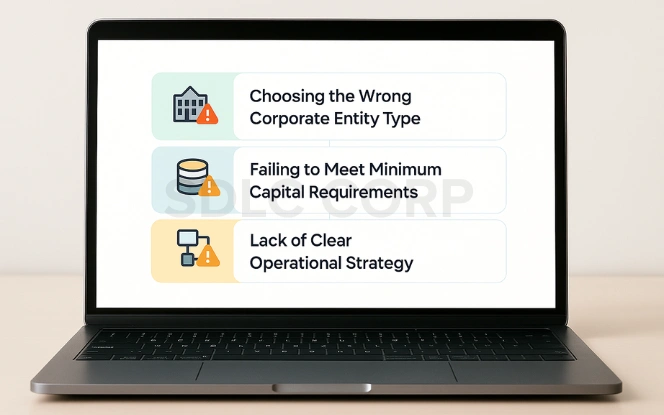
Inadequate business planning can lead to significant issues when applying for a Panama gaming license. A well-planned business structure is crucial for obtaining a license, as it demonstrates to regulatory bodies that your operation is stable and compliant with local laws.
One of the key aspects of business planning is selecting the appropriate corporate entity type. Choosing the wrong corporate entity type can lead to unnecessary complications and potential rejection of your license application.
Choosing the Wrong Corporate Entity Type
To illustrate the differences, consider the following table:
| Corporate Entity Type | Key Features | Tax Implications |
|---|---|---|
| International Business Company (IBC) | Flexibility in management structure, exempt from local taxes | No income tax, but may be subject to annual fees |
| Corporation | More formalities, such as annual meetings and financial reporting | Subject to local tax laws, potentially higher tax burden |
Failing to Meet Minimum Capital Requirements
- Meeting minimum capital requirements is a critical condition for license approval in Panama.
- Failure to meet these requirements can cause:
- Application delays
- Rejection of the license application
- Application delays
- Capital requirements vary depending on the type of gaming license being applied for.
Businesses must ensure they are adequately capitalized before applying.
Lack of Clear Operational Strategy
- A clear operational strategy is essential to prove business viability and regulatory compliance.
- Key elements of an effective strategy include:
- Well-defined business model
- Transparent management structure
- Operational policies and procedures
- Well-defined business model
- Developing a solid strategy requires:
- Understanding the local market
- Identifying target audience
- Outlining business processes
- Understanding the local market
- Benefits:
- Improves chances of license approval
- Helps establish a sustainable and successful gaming operation
- Improves chances of license approval
4. Technical Infrastructure and Software Errors
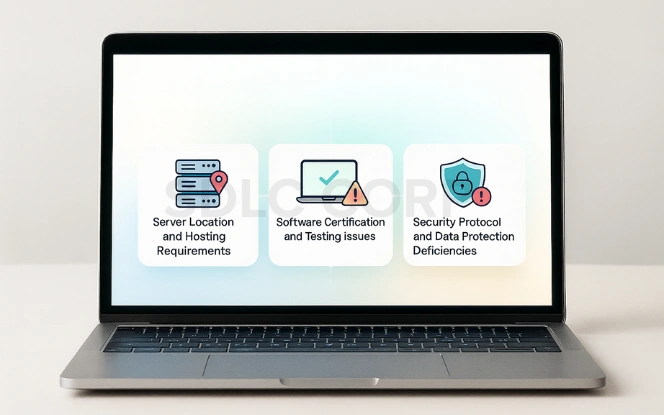
Technical infrastructure and software play a pivotal role in the operation of online gambling platforms licensed in Panama. Ensuring that these elements are properly configured and maintained is crucial for a successful license application.
Server Location and Hosting Requirements
- Server placement is a critical factor in the technical setup for online gambling operators.
- Panama has specific regulations concerning:
- Data storage requirements
- Server location compliance
- Data storage requirements
- Operators must ensure that servers are hosted in jurisdictions approved under Panama’s gaming laws.
- To remain compliant, it is common practice to:
- Partner with reputable hosting providers
- Select providers who understand and meet legal requirements
- Partner with reputable hosting providers
- Proper server setup ensures regulatory compliance, data security, and operational stability.
Key Considerations:
- Compliance with Panama’s data storage regulations
- Selection of a reliable hosting provider
- Ensuring server security and data protection
| Requirement | Description | Importance Level |
|---|---|---|
| Server Location | Must be in a compliant jurisdiction | High |
| Hosting Provider | Should be reputable and experienced | High |
| Data Protection | Must comply with Panama’s data protection laws | Critical |
Software Certification and Testing Issues
- All gambling software in Panama must be certified by a recognized testing laboratory.
- Certification ensures that the software is:
- Fair (no manipulation of outcomes)
- Secure (protected against vulnerabilities)
- Compliant with Panama’s regulatory standards
- Fair (no manipulation of outcomes)
- Operators should be prepared to:
- Undergo rigorous testing procedures
- Provide detailed technical and development documentation
- Demonstrate ongoing compliance with certification standards
- Undergo rigorous testing procedures
Common Issues:
- Insufficient documentation of software development
- Failure to meet certification standards
- Inadequate testing protocols
Security Protocol and Data Protection Deficiencies
- Robust security protocols are essential to:
- Protect player data
- Maintain the integrity of gambling operations
- Protect player data
- Panama’s gaming regulations require strict data protection measures, including:
- Encryption of sensitive information
- Secure data storage practices
- Access controls and monitoring systems
- Encryption of sensitive information
- Operators must:
- Show a comprehensive understanding of security obligations
- Implement effective, documented security protocols
- Regularly update and audit their systems to ensure compliance
- Show a comprehensive understanding of security obligations
Quick Compliance Checklist:
- Host servers in approved jurisdictions
- Use certified gambling software
- Encrypt player data
- Run regular security audits
Best Practices:
- Implementing end-to-end encryption
- Regular security audits and testing
- Compliance with international data protection standards
Curacao’s gambling license has widespread recognition due to its longevity in the market. Over 450 online casinos operate under Curacao licenses. However, it has historically been viewed as less stringent than European licenses. The ongoing regulatory reforms aim to enhance its reputation and compliance standards.
5. Legal Representation and Consultation Missteps
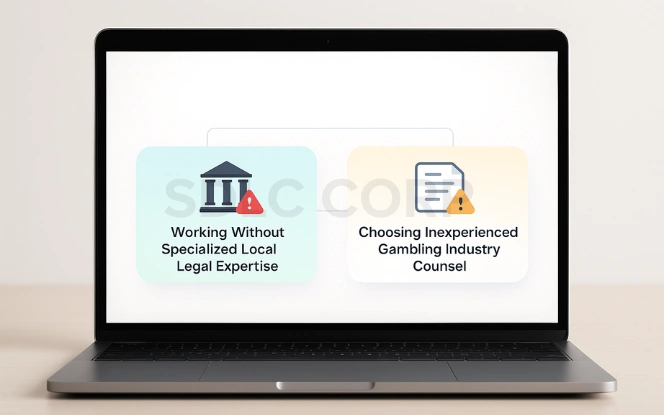
Securing a Panama gambling license demands not only a thorough understanding of the local regulations but also the right legal expertise. Legal representation plays a crucial role in navigating the complexities of the licensing process.
Effective legal counsel can help applicants avoid common pitfalls and ensure compliance with Panama’s gambling laws. The consequences of inadequate legal representation can be severe, potentially leading to application delays or rejections.
Working Without Specialized Local Legal Expertise
- One of the most critical mistakes operators make is moving forward without local legal guidance.
- Panama’s gambling regulations are unique and require specialized knowledge.
- Local legal experts provide:
- A deep understanding of the regulatory framework
- Insight into nuances and evolving legal requirements
- Guidance that reduces the risk of costly mistakes or delays
- A deep understanding of the regulatory framework
- Partnering with specialized Panamanian legal advisors ensures smoother navigation of the licensing process and ongoing compliance.
Choosing Inexperienced Gambling Industry Counsel
- Choosing inexperienced legal counsel is a serious mistake in the Panama licensing process.
- Lawyers unfamiliar with the gambling industry’s complexities may:
- Overlook critical requirements
- Misinterpret regulatory obligations
- Cause costly errors in the application process
- Overlook critical requirements
- It is essential to select consultants with a proven track record in handling Panama gambling license applications.
Without local legal counsel, your license application could be delayed 6–12 months.
| Aspect | Importance | Consequence of Misstep |
|---|---|---|
| Local Legal Expertise | High | Application Delays |
| Experience in Gambling Law | High | License Rejection |
| Understanding of Local Regulations | Critical | Non-Compliance Penalties |
6. Application Process and Timeline Misconceptions
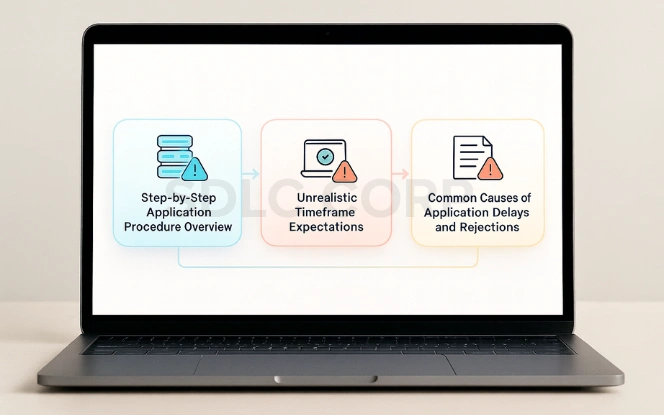
To avoid delays, it’s essential to grasp the intricacies of the Panama gambling license application process and its timeline. Many applicants have unrealistic expectations about the timeframe required, and delays or rejections often result from misunderstandings about the process.
Step-by-Step Application Procedure Overview
- Step 1: Select the Appropriate License Type
- Choose the license that aligns with your business model (e.g., online gambling, land-based casinos, sports betting, or poker rooms).
- Choose the license that aligns with your business model (e.g., online gambling, land-based casinos, sports betting, or poker rooms).
- Step 2: Prepare Comprehensive Documentation
- Compile and organize all required documents, including:
- Detailed business plan
- Financial statements
- Background checks on key personnel
- Compile and organize all required documents, including:
- Step 3: Submit the Application to the JCJ
- File the completed application package with the Panama Gaming Control Board (JCJ).
- File the completed application package with the Panama Gaming Control Board (JCJ).
- Step 4: JCJ Review and Due Diligence
- The JCJ conducts:
- Compliance checks
- Ownership and financing investigations
- Verification of submitted documentation
- Compliance checks
- The JCJ conducts:
- Step 5: Decision and License Issuance
- The JCJ will either:
- Approve the license
- Request additional information
- Or reject the application if requirements are unmet
- The JCJ will either:
Unrealistic Timeframe Expectations
- A common misconception is that the Panama gambling license application process is quick.
- In reality, approval can take several months to over a year.
- Key factors influencing the timeline include:
- Complexity of the application (e.g., type of license, business model)
- Completeness and accuracy of submitted documentation
- Workload and review pace of the JCJ (Panama Gaming Control Board)
- Complexity of the application (e.g., type of license, business model)
- Applicants should plan with a realistic timeframe to avoid operational and financial disruptions.
Common Causes of Application Delays and Rejections
Delays and rejections often stem from incomplete or inaccurate documentation, insufficient financial resources, or failure to meet compliance obligations. Understanding these potential pitfalls can help applicants prepare more effectively.
| Cause of Delay/Rejection | Description | Prevention Strategy |
|---|---|---|
| Incomplete Documentation | Missing or inaccurate documents | Double-check all documentation before submission |
| Insufficient Financial Resources | Lack of sufficient capital | Ensure financial requirements are met before applying |
| Non-Compliance | Failure to meet regulatory requirements | Consult with compliance experts to ensure adherence to regulations |
7. Anti-Money Laundering and Compliance Failures
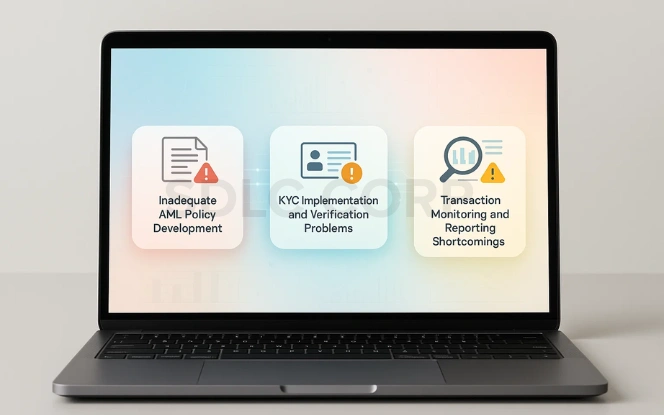
Operators applying for a Panama gambling license must navigate complex anti-money laundering (AML) and compliance requirements. The Panama Gaming Control Board (JCJ) enforces stringent regulations to prevent financial crimes and ensure the integrity of the gambling industry.
Inadequate AML Policy Development
- A robust Anti-Money Laundering (AML) policy is a core compliance requirement in Panama’s gambling regulations.
- Operators must establish clear, well-documented AML policies that include:
- Customer Due Diligence (CDD) procedures
- Ongoing monitoring of player transactions
- Reporting mechanisms for suspicious activities
- Customer Due Diligence (CDD) procedures
- Panama’s legal framework requires operators to be proactive in preventing money laundering.
- Failure to develop and implement strong AML policies can result in:
- License rejection or revocation
- Severe financial penalties
- Reputational damage within the industry
- License rejection or revocation
KYC Implementation and Verification Problems
- Know Your Customer (KYC) procedures are a mandatory compliance requirement in Panama’s gambling regulations.
- KYC ensures:
- Verification of customer identity
- Assessment of player risk profiles
- Prevention of fraud and money laundering
- Verification of customer identity
- Inadequate KYC implementation can lead to:
- Regulatory compliance failures
- Fines or license suspension/revocation
- Increased operational and reputational risks
- Regulatory compliance failures
- Operators must ensure their KYC processes are:
- Thorough and reliable
- Fully aligned with Panama’s gambling license requirements
- Supported by documented verification procedures and secure data handling
- Thorough and reliable
Transaction Monitoring and Reporting Shortcomings
Effective transaction monitoring is crucial for identifying and reporting suspicious activities. Operators must implement robust systems to monitor transactions in real-time, ensuring compliance with AML regulations. Failure to do so can result in significant penalties and reputational damage.
Example: In 2021, a Panama operator was fined $200,000 for weak KYC checks. Regulators take AML very seriously.
| Compliance Area | Common Failures | Regulatory Impact |
|---|---|---|
| AML Policy Development | Inadequate customer due diligence | High risk of non-compliance |
| KYC Implementation | Insufficient customer verification | Potential for identity fraud |
| Transaction Monitoring | Failure to report suspicious transactions | Significant regulatory penalties |
8. Financial Considerations and Fee Structure Mistakes
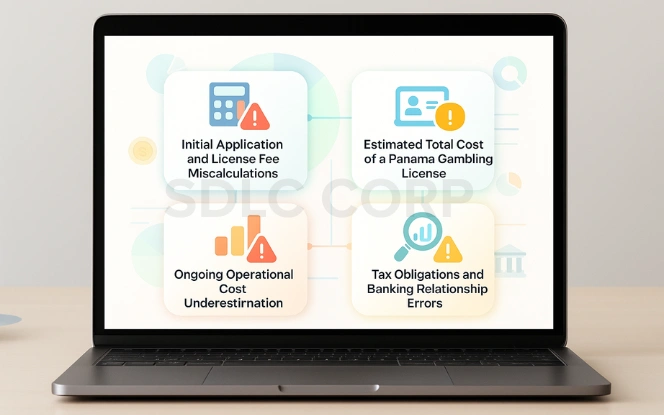
When applying for a Panama gaming license, understanding the financial aspects is crucial for a successful application. A thorough grasp of the financial obligations associated with a Panama gaming license can make or break your application. The process involves various costs, including initial application fees, license fees, and ongoing operational expenses.
Initial Application and License Fee Miscalculations
One of the most common financial mistakes is miscalculating the initial application and license fees. These costs can be substantial and vary depending on the type of license you’re applying for.
To avoid this, it’s essential to:
- Carefully review the fee structure outlined by the Panama Gaming Control Board (JCJ)
- Understand the different types of licenses and their associated costs
- Factor in any additional expenses, such as legal fees and documentation costs
Hidden costs to budget for: legal fees, server hosting, software certification testing.
Estimated Total Cost of a Panama Gambling License
- Minimum Capital Requirement: $500,000
- Annual License Fee: $10,000
- Application/Processing Fees: $5,000 – $15,000 (varies)
- Legal & Consulting Fees: $20,000 – $50,000 (one-time or recurring)
- Server Hosting & Certification: $10,000 – $30,000 annually
- Compliance & Audits: $15,000 – $25,000 annually
- Operational Overheads: Variable (staff, office, marketing)
📊 Estimated Initial Setup Cost: $550,000 – $600,000+
📊 Estimated Annual Ongoing Cost: $40,000 – $70,000+
Ongoing Operational Cost Underestimation
Another financial pitfall is underestimating the ongoing operational costs associated with maintaining a Panama gaming license.
These costs can include:
- Annual license renewal fees
- Compliance and auditing expenses
- Staffing and operational overheads
To avoid underestimation, it’s crucial to develop a comprehensive business plan that accounts for all ongoing expenses.
Tax Obligations and Banking Relationship Errors
Making errors in tax obligations and banking relationships can also have significant financial implications.
It’s vital to:
- Understand Panama’s tax laws and how they apply to your gaming operation
- Establish a stable banking relationship to facilitate transactions and comply with financial regulations
By being aware of these potential financial mistakes, you can better navigate the process of obtaining and maintaining a Panama gaming license.
9. Post-Approval Requirements and Common Oversights
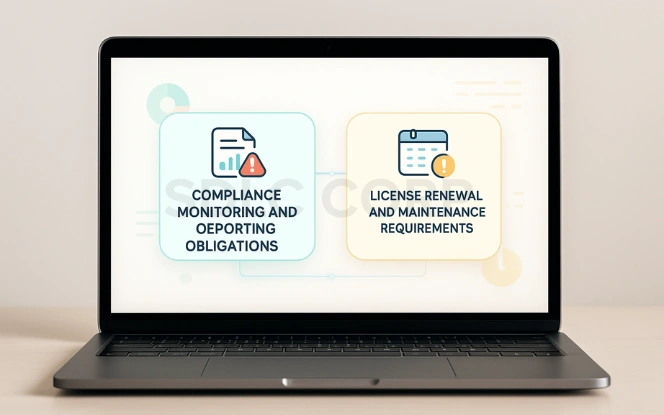
The issuance of a Panama gaming license marks a significant milestone, but it’s crucial to understand the ongoing requirements that follow. License holders must be aware of their obligations to maintain compliance and avoid common oversights that could jeopardize their license.
Compliance Monitoring and Reporting Obligations
- Once a license is approved, operators must comply with ongoing monitoring and reporting requirements.
- License holders are required to submit regular reports to the Panama Gaming Control Board (JCJ) covering:
- Operational activities
- Financial transactions
- AML (Anti-Money Laundering) compliance measures
- Operational activities
- Failure to comply with these reporting obligations can result in:
- Financial penalties
- Suspension or revocation of the license
- Financial penalties
- To remain compliant, operators should:
- Implement robust compliance monitoring systems
- Maintain accurate and up-to-date records
- Ensure timely submission of reports as required by the JCJ
- Implement robust compliance monitoring systems
License Renewal and Maintenance Requirements
- License renewal is a mandatory process for maintaining a valid Panama gaming license.
- Renewal is typically required annually, depending on the license type.
- Key renewal obligations include:
- Paying the renewal fees on time
- Submitting updated documentation as requested by the JCJ
- Demonstrating ongoing compliance with regulatory standards
- Paying the renewal fees on time
- Failure to renew on time can result in:
- Lapse of license validity
- Temporary suspension or permanent revocation
- Lapse of license validity
- Best practices for operators:
- Stay informed of renewal deadlines and requirements
- Maintain a compliance calendar to track obligations
- Ensure continuous operational and regulatory compliance
- Stay informed of renewal deadlines and requirements
Renewal Checklist:
- Pay annual renewal fee
- Submit updated compliance reports
- Renew legal agreements
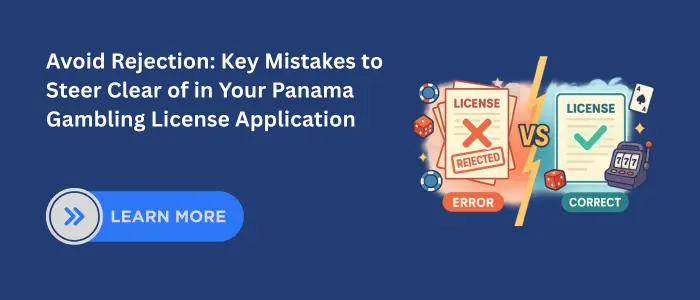
Conclusion
Applying for a Panama gambling license is complex, but success comes from understanding regulations and avoiding common mistakes. Strong documentation, financial readiness, compliance, and the right business structure are essential. With proper planning, legal support, and technical infrastructure, you can secure approval and build a sustainable gambling operation in Panama. If you’re serious about entering Panama’s gaming market, start by securing expert legal counsel and preparing a detailed business plan. This will save you costly delays and improve your approval chances.
FAQs
How much does a Panama gambling license cost in 2025?
The cost typically includes a $500,000 minimum capital requirement, a $10,000 annual license fee, plus additional operational expenses such as legal fees, compliance costs, and server hosting.
Can foreign companies apply for a Panama gambling license?
Yes. Foreign operators can apply, but they must meet Panama’s financial and compliance requirements. Most benefit from setting up an International Business Company (IBC) for tax advantages and flexibility.
What are the most common mistakes when applying for a Panama gambling license?
Frequent mistakes include:
- Submitting incomplete documentation
- Underestimating financial requirements
- Overlooking AML and KYC compliance
- Poor business planning or structure
- Hiring inexperienced legal counsel
What types of gambling licenses are available in Panama?
Panama offers licenses for sports betting, online casinos, poker rooms, and land-based casinos. The license type depends on your business model and services.
How can I ensure compliance with Panama's anti-money laundering (AML) regulations?
To comply with AML rules, you must:
- Develop a robust AML policy
- Conduct strict Know Your Customer (KYC) checks
- Monitor and report suspicious transactions
- Undergo regular audits by the regulator (JCJ)
What are the financial considerations for obtaining a license?
In addition to the capital requirement and license fees, you should budget for:
- Annual renewal fees
- Compliance and auditing costs
- Staff and operational overheads
- Banking and tax obligations
What are the consequences of non-compliance with Panama’s gambling regulations?
Failure to comply can lead to heavy fines, license suspension or revocation, and reputational damage. Maintaining ongoing compliance is crucial for long-term success

